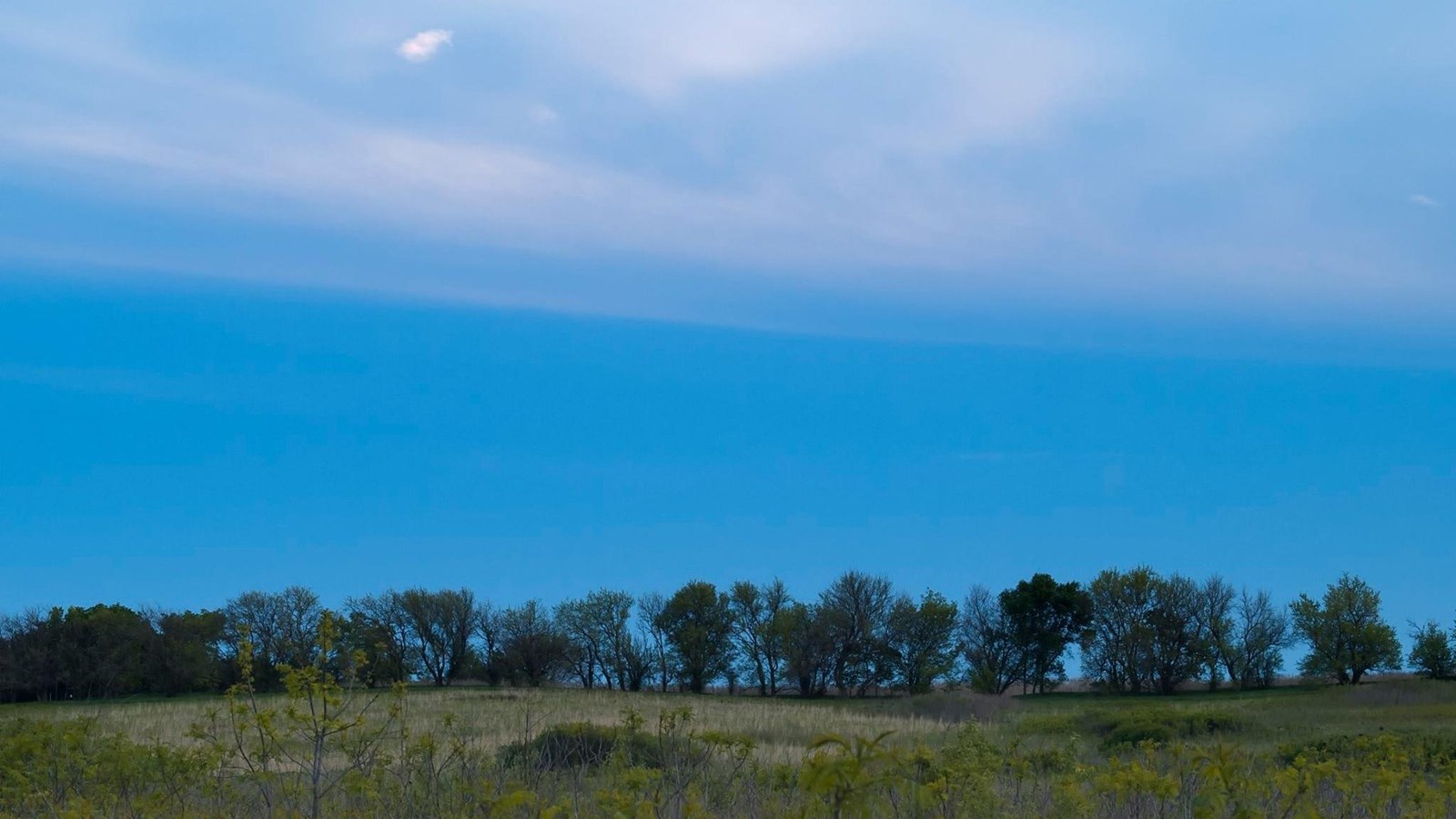Last updated: July 19, 2025
Place
Historic Osage Orange Hedgerow

NPS Photo
The Osage orange was a popular tree among homesteaders in the decades before barbed wire because it could be used for fencing. The Osage orange hedgerow at Homestead National Historical Park is an example of one of these walls, and as such is listed in the National Register of Historic Places.
This hedgerow was planted by Daniel Freeman, one of the first homesteaders. Osage orange (Maclura pomifera) is native to parts of Texas and Oklahoma but was commonly planted as hedgerows in Nebraska and other Midwestern states. When woven together these fast-growing trees produced a "pig tight, horse high, and bull strong," fence. One bushel of seed would yield 30,000 plants, enough for 6 miles of fence! This was a popular solution to the fencing problem on the treeless prairie. The original Osage orange hedgerow planted on Daniel's homestead has survived a century.
This hedgerow was planted by Daniel Freeman, one of the first homesteaders. Osage orange (Maclura pomifera) is native to parts of Texas and Oklahoma but was commonly planted as hedgerows in Nebraska and other Midwestern states. When woven together these fast-growing trees produced a "pig tight, horse high, and bull strong," fence. One bushel of seed would yield 30,000 plants, enough for 6 miles of fence! This was a popular solution to the fencing problem on the treeless prairie. The original Osage orange hedgerow planted on Daniel's homestead has survived a century.
